Major rivers to get routine sewage pollution tests
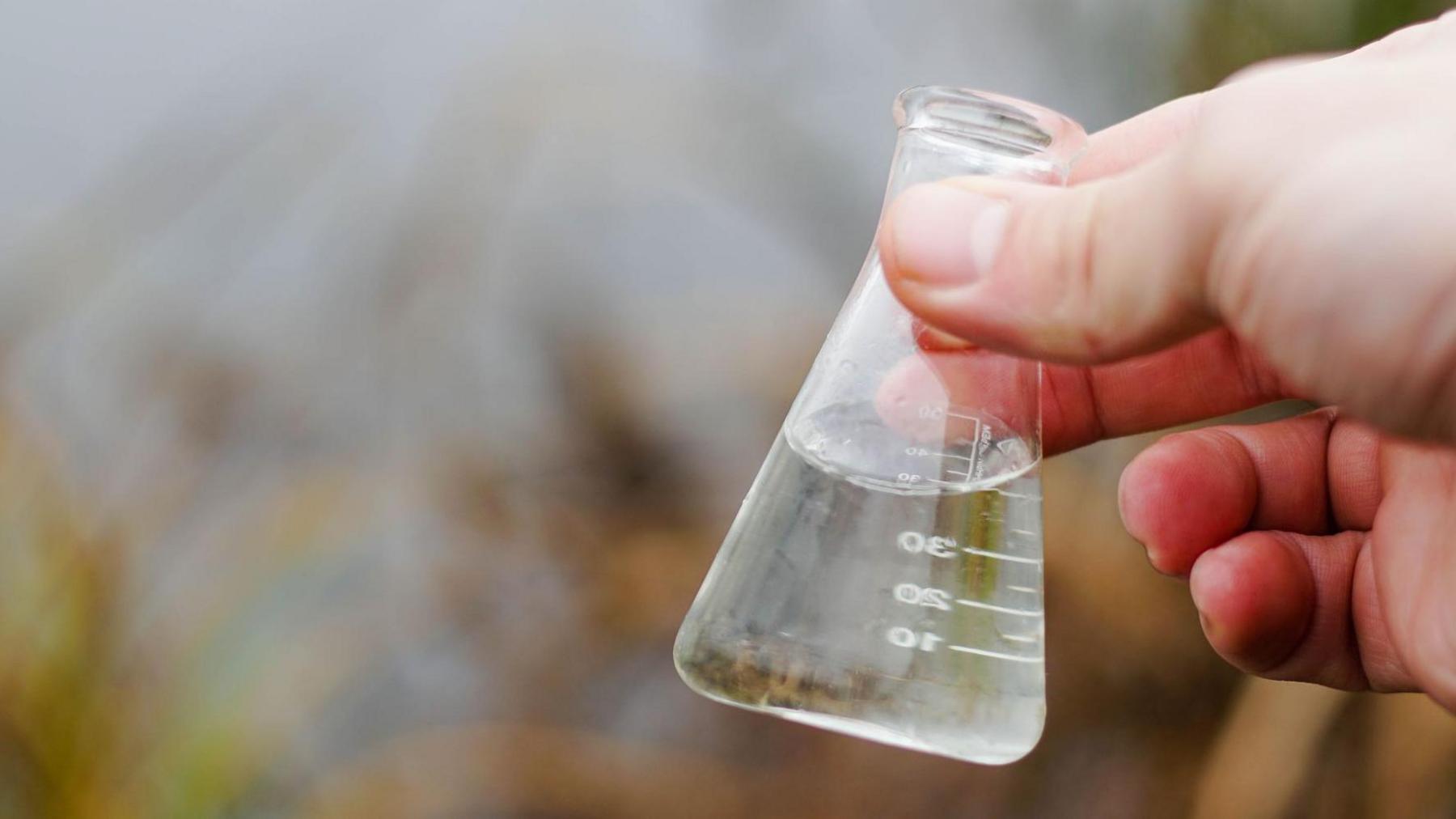
- Published
A county's sewage and water quality monitoring project is to be extended to three more rivers.
The Four Rivers Project in Suffolk will now also cover the Alde-Ore river system, the Waveney and the Blyth.
It builds on work done by volunteers on the Deben to highlight sewage spills and other pollution, and will be backed by more than £200,000 from East Suffolk Council over three years.
It will provide regular updates on bathing water quality and share data with regulators. The Environment Agency said it was ensuring the water system met "the needs of both people and the environment".
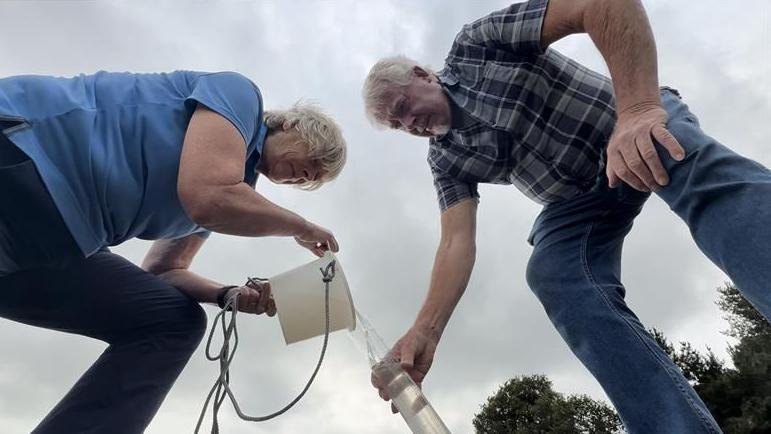
Teams of volunteers will now test water quality on four rivers in a county and their tributaries
The project will monitor levels of E. coli and phosphates monthly at multiple locations along the rivers.
Both can come from sewage works and other sources, such as run-off from farmland.
It will also monitor fly larvae numbers, which are an indicator of river health.
Volunteers, including retired scientists, use testing methods designed and approved by the University of Suffolk.
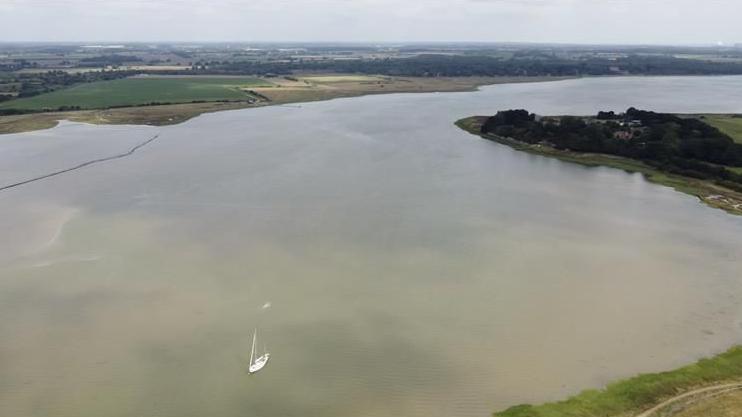
The Alde and Ore is one of the river systems that will now have routine water quality tests
"The regulatory bodies have difficulty in keeping up with their own requirements for testing and monitoring," said project volunteer Peter Clitheroe.
"If we provide information for them to do their job better, so that the regulators actually start regulating rather than simply monitoring, then we can start making some real progress for the sake of all the rivers.
"Unless we have a consistent picture right across the piece, we can't make individual decisions about what needs to be done in specific locations."
The project will also involve workshops and physical interventions like buffer zones, vegetation planting and leaky dams.
East Suffolk Council cabinet member for the environment Sally Noble warned rivers were "in decline, struggling with the pressures of development and pollution".
She said: "We've got professors, we've got retired scientists, a wealth of knowledge and experience that we can harness."
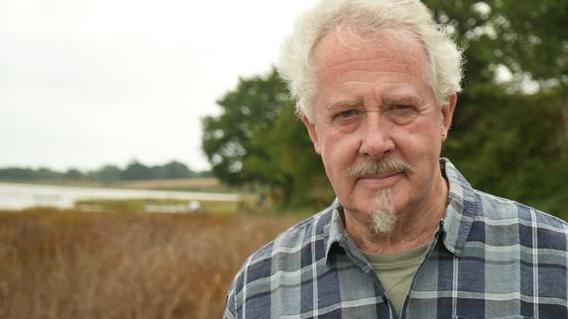
Peter Clitheroe is one of the volunteers working on the project
The pressures faced by rivers are not just down to pollution.
"Climate change is starting to affect what had been happening every year, it's just getting worse now," said Four Rivers Project manager Eamonn O'Nolan.
"We've had low rainfall in the summer, the droughts are longer and more frequent as well."
He said collecting scientifically robust data was essential: "Following data we've given to Anglian Water, they've started installing phosphate reduction plants on the River Deben and that's had a dramatic effect."
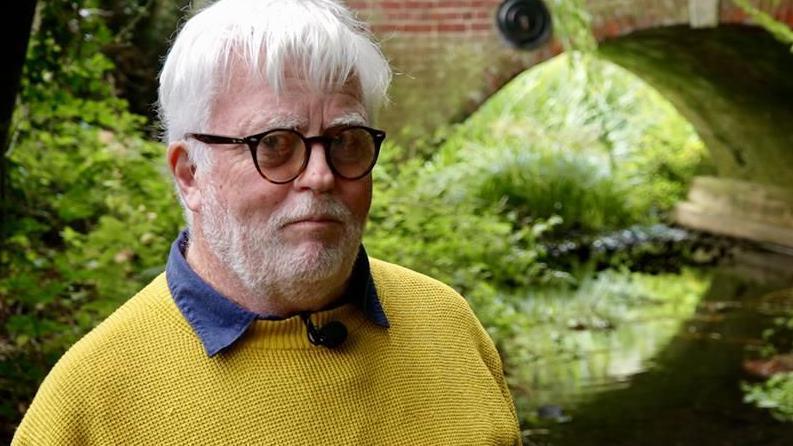
Eamonn O'Nolan is project manager of the Four Rivers Project
Anglian Water, recently ordered by Ofwat to pay out £62.8m after sewage spills from storm overflows, said: "We share our customers' desire to make our waterways healthier and we're committed to making sure our operations will not be the reason for poor river health.
"As part of our five-year business plan, we're investing £4bn to enable nature recovery for the well-loved environment in the East of England.
"We're excited to continue our collaborative work with the Deben Climate Centre on the next stage of this project."
The Environment Agency told the BBC it was playing its part in "transforming water regulation".
"We commend Deben Climate Centre and we share their passion for improving the water quality of our rivers," a spokesperson said.
"Regulators, water companies and local authorities will need to take collective responsibility and work together to achieve this aim."
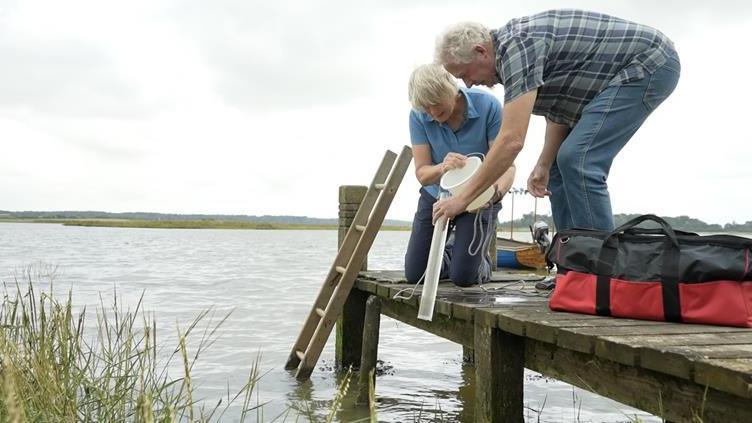
Anglian Water to pay £62.8m over wastewater failures
- Published29 July
Rivers becoming 'reservoirs of disease' warn experts
- Published12 July 2024
Related internet links
Follow Suffolk news on BBC Sounds, Facebook, external, Instagram, external and X, external.
Get in touch
Do you have a story suggestion for Suffolk?